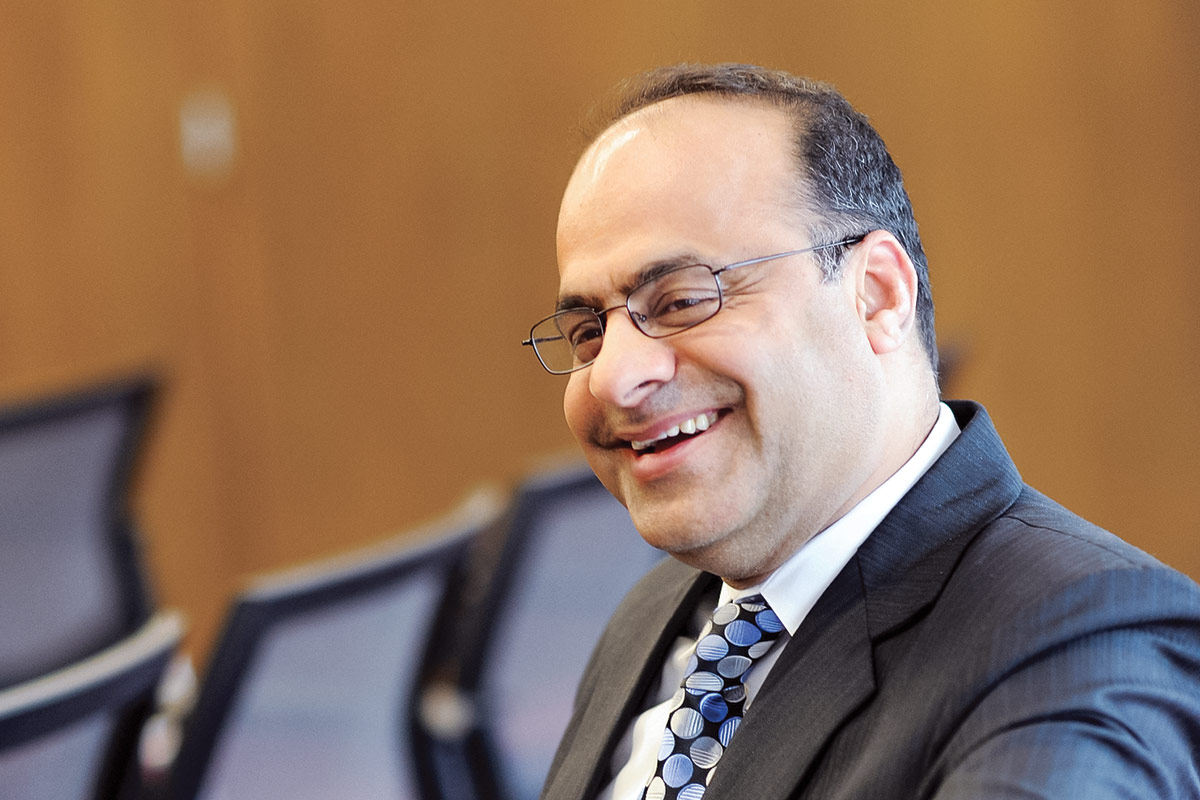
Fourteen years into his career as a public health practitioner, Associate Dean Ashish Joshi wears many hats. As a researcher, professor, mentor, and entrepreneur, he has a passion for solving health disparities. As a dean, he makes a practice of fully identifying with students in order meet their needs.
“When I look at a student, I think of myself as a student and that’s how I make my decisions as an administrator.” Joshi says. “That makes me think differently—you have to be adaptive to understand those things from a broader population perspective.”
Joshi arrived in the states as an international student in 2002. He had $3,000 to his name—a first semester student loan—and limited computer literacy. When he became an associate dean, one of his first missions was to introduce on-campus jobs in his student affairs office to help students pay for their education and learn valuable administrative skills.
“Sometimes you have to go out of your comfort zone to rethink how you can make a social transformation,” Joshi says. “When I came to the United States to study, I couldn’t get an on-campus job. The challenge so many students face is how to pay tuition, how to pay their bills. Very basic things. The degree is important but at the same time, they need access to the resources that will enable them succeed in their studies.”
His other initiatives range from creating a global health club, in which international students present on their home countries’ public health systems, to championing research partnerships with faculty and outside organizations that let students network and find employment opportunities to enhance their education and their future careers.
Another recent achievement for Joshi and CUNY’s graduate public health students is the successful launch of the new CUNY SPH Graduate Student Government Association. From electing representatives to ratifying its constitution and receiving trustee approval, the process of making the student government a reality took from November 2016 to June of 2017. And while Joshi says the formation process could have waited until the following year, the administration and the students involved wanted to have representatives addressing student issues as quickly as possible.
“The school is here for the students—they’re the priority,” Joshi says. “What is the best way to address student needs? To know and understand them. And what is the best way to understand their needs? To have a student government so that students have an equal voice in shaping the school.”
A new approach to health informatics
He describes himself as an “aggressive implementer,” a term reflected in his curriculum vitae. Three years after joining SPH, he is successfully juggling numerous grant-funded informatics projects across multiple countries, including India, Brazil, and Nigeria. He also lectures regularly and, in October 2017, released his first textbook, Population Health Informatics: Driving Evidence Based Solutions into Practice, co-authored with Lorna Thorpe (New York University School of Medicine) and fellow CUNY SPH faculty member Levi Waldron.
When Joshi launched an online Population Health Informatics Certificate, the program inspired state and local departments of health to offer CUNY informatics students opportunities to intern and research outside the city and in states such as Texas. Joshi sees this development as evidence of the growing recognition of the centrality of population informatics skills in the public health workforce and the value of his certificate program.
“Strategically, I’m showing that the need is there—that is the goal,” says Joshi. “I am not creating a curriculum; I’m creating and tailoring my curriculum to the public health needs of organizations like the Department of Health and the communities they serve.”
A clinician by training, Joshi earned a master’s degree in epidemiology and biostatistics from Boston University in 2004 and a PhD in public health informatics from the University of Texas. His interpretation of health informatics encourages public health workers to use technology to proactively address health disparities to “prevent, monitor, and self-manage” health issues rather than wait until a patient reaches the level of hospitalization.
“I call my platform and research ‘SMAART:’ Sustainable, Multisectoral, Accessible, Affordable, Reimbursable, Tailored,” Joshi says. “The health of the population has many contributing factors. For instance, if someone is not financially independent or not able to afford health solutions, how can they maintain their health? All my research is built around creating culturally adaptive material that allows communities to modify their behavior while keeping their social circumstances in mind.”
Looking ahead
In the future, Joshi aspires to expand the student-centered master’s experience he has helped develop thus far. His list includes making the new student government a success, finding new ways to limit student debt, and creating an enhanced database of organizations that connects students to new domestic and international job opportunities. He also continues his research projects both locally and globally and continues to involve students every chance he has.
“The vision was first to create an environment for the students that allows them to succeed academically,” Joshi says. “Then to provide the environment that also allows them to have non-academic enrichment.”
“Student centeredness and thinking outside of the box,” Joshi says. “Those are the keys.”













